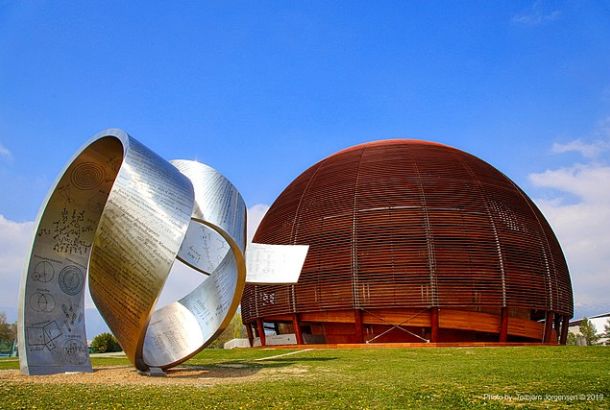Manchester scientists discuss the possibility of alien life
A 60-minute conversation between staff from the University of Manchester—including Dr David Kirby (Centre for the History of Science, Technology and Medicine); Professor Matthew Cobb and Dr Sheena Cruikshank (Faculty of Life Sciences); Professor Danielle George (Engineering); Dr Aravind Vijayaraghavan (Materials); and science fiction writer and physicist Alastair Reynolds—has been uploaded onto YouTube as a 4-part episode discussing the possibility of alien life.
The aim of this discussion was for public engagement of an interesting and speculative subject that science has not yet been able to provide a definitive conclusion for. The videos demonstrate that not one perspective can answer such a question, and thus requires evidence and opinion from a number of expertise. The topics discussed included the practicalities of alien communication and contact, the origin of life, and possible alien life forms.
At the start of the discussion, all experts agreed that simple alien life is possible, but intelligent life form is unlikely. Spoiler: Sadly these opinions don’t change by the end of the discussion, but it’s a fun and interesting watch nonetheless, with good science conversation and some friendly ‘battle-of-the-sciences’ banter.
This is particularly obvious between materials expert Dr Aravind Vijayaraghavan and biologist Professor Matthew Cobb. For example, Dr Vijayaraghavan states, “We don’t understand 90 per cent of the universe and the 10 per cent we think we understand we kind of understand a little bit—so how can we know how aliens would communicate with us? They probably have [found us], they’re probably walking amongst us”, to which Prof. Matthew Cobb replies, “What’s the probability of probably? Probably very tiny.”
Dr Vijayaraghavan then questions Professor Cobb in part 2 of the programme, when Cobb states that, “The joining of two cells that produced our eukaryotic cells only happened once in 3.5 billion years.” Vijayaraghavan responds by asking, “How can you be so sure that it only happened once in one location?”
From mentions of space graffiti to alien taxonomy, the discussion was entertaining, informative, and easy to understand for a general public audience. Dr Sheena Cruickshank, Academic Lead for Public Engagement with Research, commented on her involvement in the show, saying, “I very much enjoyed making this—it was fascinating to research the topic and discuss with scientists from such diverse backgrounds as we all had different views and ideas.”
Professor Matthew Cobb, who led the show, spoke to The Mancunion about the importance of science communication and public engagement efforts like this. He said: “I think that scientists—and academics in general—have a responsibility to explain their work to the general public. Directly or indirectly, the public pay for our work, so they have a right to know.
“Equally importantly, if we care about our subject, if we think it is important or interesting, then surely we should want to explain it to as many people as possible.
“The world is changing in remarkable and alarming ways, and new technology is enabling us to manipulate the natural world with an unprecedented degree of accuracy.” He continues, saying: “I think deciding how to respond to climate change and threats to biodiversity will require us all to be able to understand what is at stake—the potential advantages and the potential risks. In various areas of science we are at the threshold of some astonishing discoveries.
“For example, physicists have realised that they do not know what 85 per cent of the universe is made of, while biologists have been able to reconstruct humanity’s astonishing evolutionary history, making discoveries that that would have been dismissed as science fiction only a decade ago. At these two very different scales, science is about to change how we view our place in the universe, what it is to be human, and indeed the very nature of reality. Everyone should know about this stuff!”
The link to the discussion on YouTube can be found here.
The experts have recorded a second programme answering the question: ‘Will the machines rule the world?’







